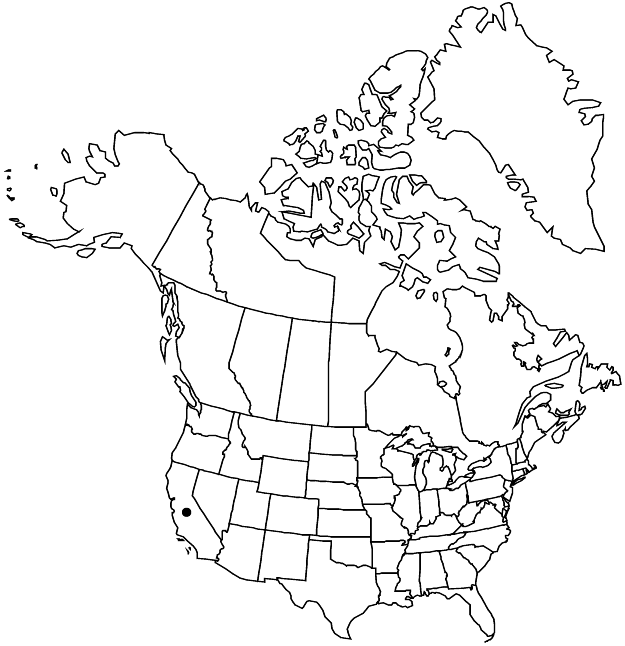Difference between revisions of "Eriogonum nudum var. westonii"
Mentzelia 1: 20. 1976.
FNA>Volume Importer |
FNA>Volume Importer |
(No difference)
| |
Revision as of 22:36, 16 December 2019
Plants 3–6 dm. Aerial flowering stems fistulose, 1–3 dm, glabrous. Leaves basal; blade 1–2 × 0.3–0.8 dm, tomentose abaxially, tomentose to floccose adaxially, margins undulate-crisped. Inflorescences often cymose, 10–30 × 5–20 cm; branches glabrous. Involucres 1(–2) per cluster, 3–5 mm, glabrous. Flowers 2.5–3 mm; perianth yellow or, infrequently, white, pubescent.
Phenology: Flowering May–Sep.
Habitat: Sandy, gravelly, or clayey flats, slopes or rocky outcrops, mixed grassland, saltbush, and sagebrush communities, oak, pinyon-juniper, and conifer woodlands
Elevation: 700-1900 m
Discussion
Variety westonii is widespread and occasionally common along the foothills of the Inner Coast and Transverse ranges of Kern and Santa Barbara counties, and onto the foothills of the Sierra Nevada in Tulare County, where the plants tend to have multiple, slender to slightly fistulose flowering stems arising from a large, woody caudex. This phase gives way to a different expression along the eastern slope of the Sierra Nevada and adjacent desert ranges in Inyo and Mono counties, where plants tend to have one or a few prominently inflated flowering stems arising from a much more compact caudex. The name var. gramineum is available for this latter phase.
Selected References
None.
